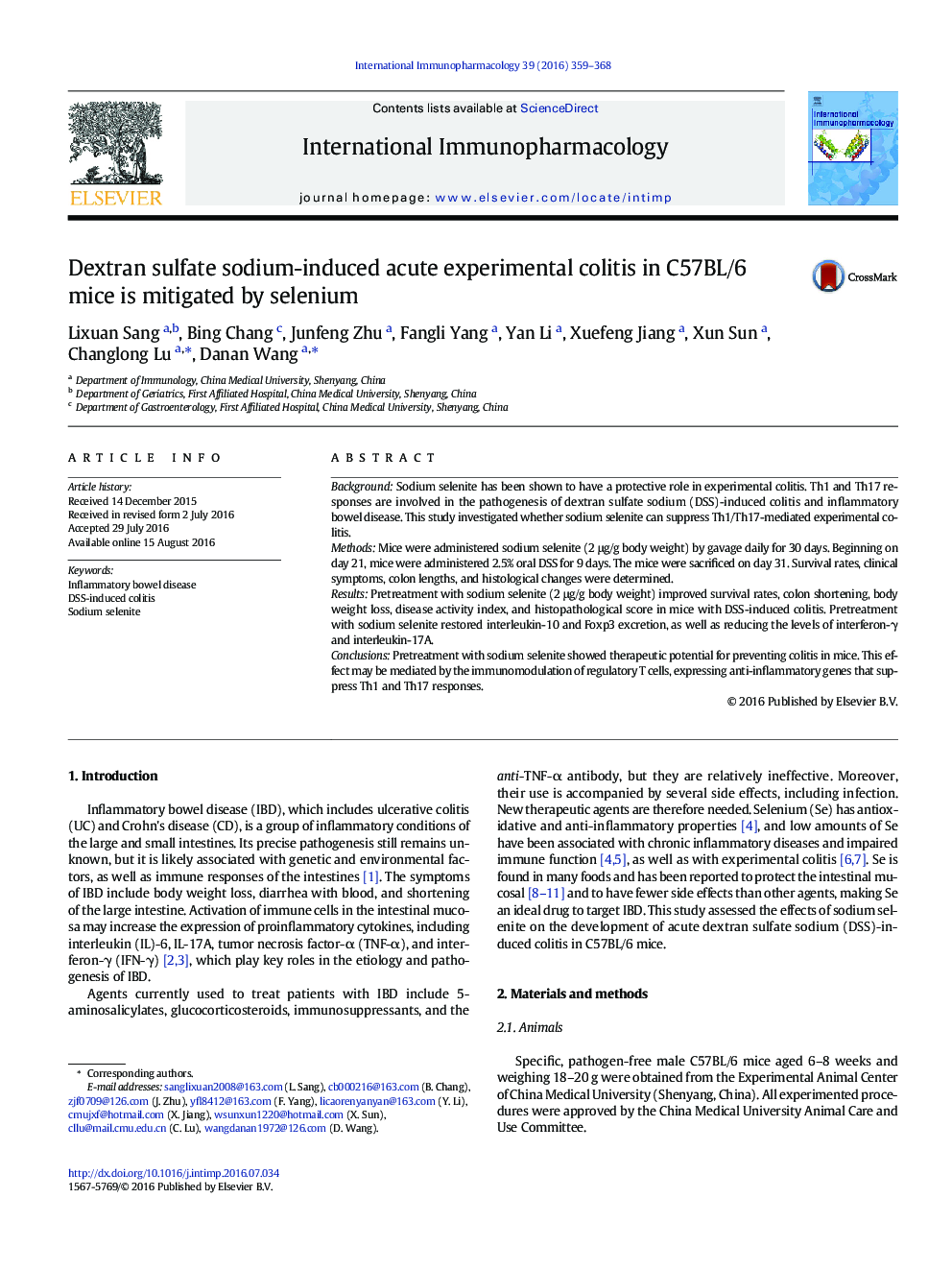| Article ID | Journal | Published Year | Pages | File Type |
|---|---|---|---|---|
| 2540227 | International Immunopharmacology | 2016 | 10 Pages |
•Selenium pretreatment significantly attenuated the experimental colitis.•Selenium pretreatment restored interleukin-10 excretion, as well as reducing the levels of interferon-γ and interleukin-17A.•Selenium corrected DSS-induced imbalance of Th1-Th17/Treg cells.
BackgroundSodium selenite has been shown to have a protective role in experimental colitis. Th1 and Th17 responses are involved in the pathogenesis of dextran sulfate sodium (DSS)-induced colitis and inflammatory bowel disease. This study investigated whether sodium selenite can suppress Th1/Th17-mediated experimental colitis.MethodsMice were administered sodium selenite (2 μg/g body weight) by gavage daily for 30 days. Beginning on day 21, mice were administered 2.5% oral DSS for 9 days. The mice were sacrificed on day 31. Survival rates, clinical symptoms, colon lengths, and histological changes were determined.ResultsPretreatment with sodium selenite (2 μg/g body weight) improved survival rates, colon shortening, body weight loss, disease activity index, and histopathological score in mice with DSS-induced colitis. Pretreatment with sodium selenite restored interleukin-10 and Foxp3 excretion, as well as reducing the levels of interferon-γ and interleukin-17A.ConclusionsPretreatment with sodium selenite showed therapeutic potential for preventing colitis in mice. This effect may be mediated by the immunomodulation of regulatory T cells, expressing anti-inflammatory genes that suppress Th1 and Th17 responses.
